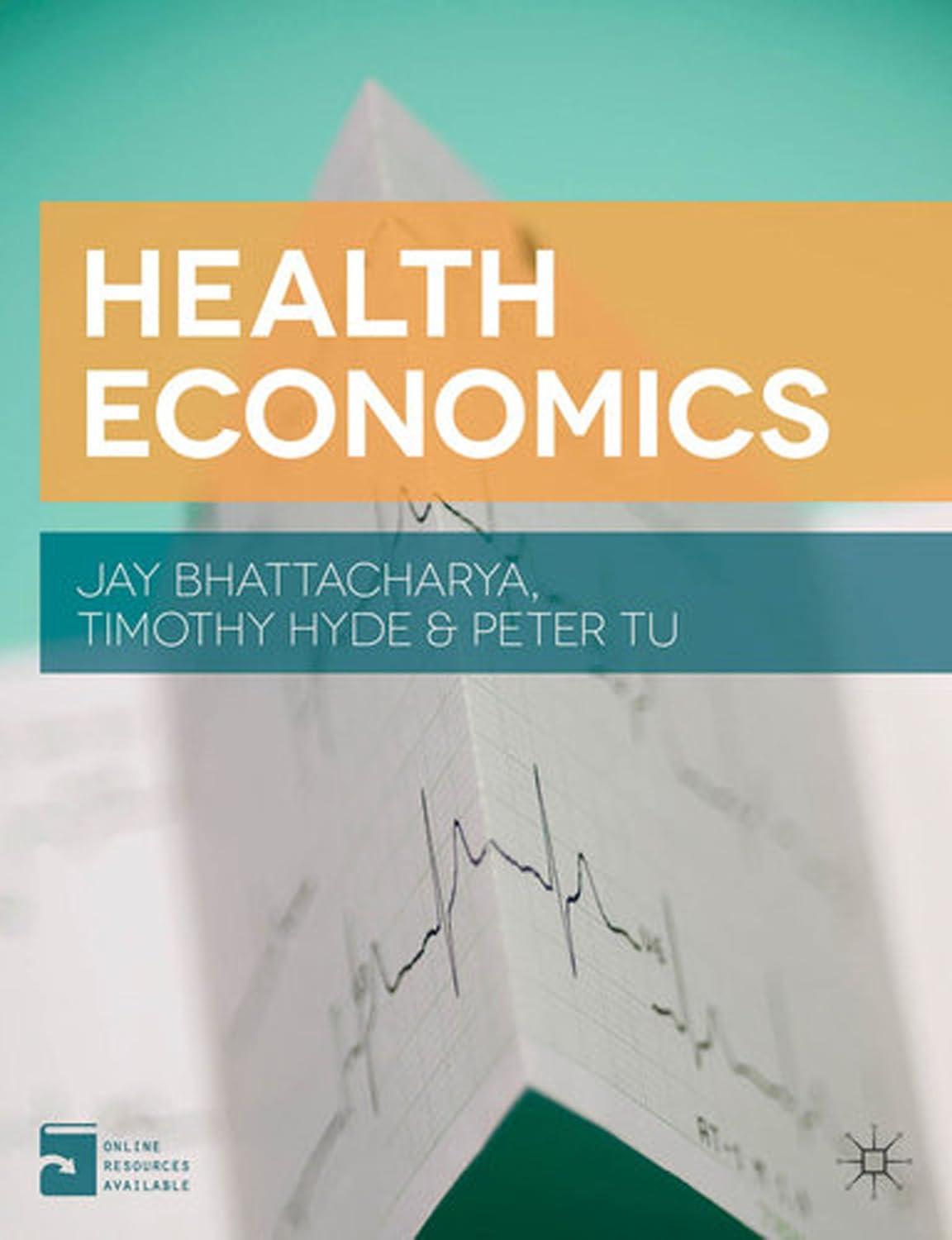In the early 2000s, the state of Massachusetts in the US implemented a health reform aimed at
Question:
In the early 2000s, the state of Massachusetts in the US implemented a health reform aimed at enrolling people without health insurance into an insurance plan. The reform required people without health insurance (at least those who could afford it) to buy insurance, and put in place penalties on those who nevertheless chose not to buy insurance. Below is the abstract of a recent National Bureau of Economic Research working paper entitled “Health reform, health insurance, and selection: estimating selection into health insurance using the Massachusetts health reform” by Martin Hackmann, Jonathan Kolstad, and Amanda Kowalski (2012). The authors conducted a study of the effects of the Massachusetts reform. They write:
We implement an empirical test for selection into health insurance using changes in coverage induced by the introduction of mandated health insurance in Massachusetts. Our test examines changes in the cost of the newly insured relative to those who were insured prior to the reform. We find that counties with larger increases in insurance coverage over the reform period face the smallest increase in average hospital costs for the insured population...
a. Is this evidence consistent with the predictions of the Rothschild–Stiglitz model?
In other words, is this evidence consistent or inconsistent with adverse selection into insurance before the Massachusetts health reform? Explain why or why not.
b. In the context of the Rothschild–Stiglitz model of adverse selection, what effect does mandating health insurance have on the utility of the robust people in the model?
Step by Step Answer:






